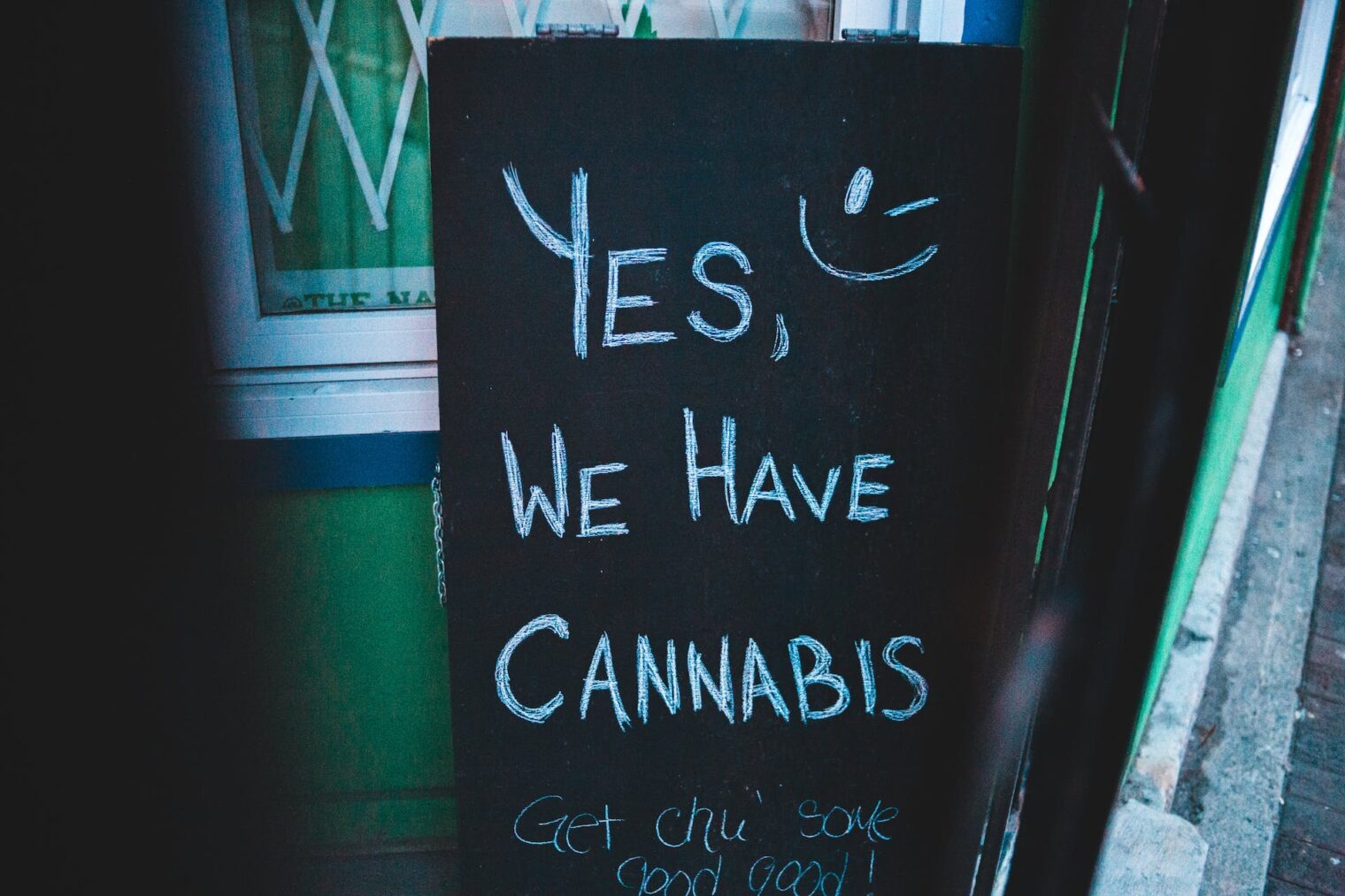Thai Cannabis-Hemp Act Revolutionizes Local Industry
The Thai Cannabis-Hemp Act is poised to bring about a significant transformation in the local industry. It introduces comprehensive regulations for the cultivation, extraction, processing, and use of cannabis and hemp in Thailand. Unlike previous legislation, this act refrains from categorizing cannabis as a narcotic. Instead, it focuses on curbing its misuse through strict control and restriction measures.
Under the new act, personal cultivation of cannabis will now require prior permission. Additionally, smoking cannabis in shops will be prohibited. The draft of this act has also been made available for public feedback. This ensures a transparent and inclusive approach to its implementation.
With clear definitions and regulations, the act aims to prevent abuse and promote responsible cultivation. Ultimately, it fosters a regulated and responsible development of the industry.
Thai Cannabis-Hemp Act: Key Takeaways
– The Thai Cannabis-Hemp Act aims to regulate the cultivation, extraction, processing, and use of cannabis and hemp in Thailand.
– Cannabis will not be reclassified as a narcotic, but its misuse will still be restricted and controlled.
– Personal cannabis cultivation will require prior permission, and smoking cannabis in shops will be prohibited.
– The act supports medicinal cannabis use but regulates recreational use, aiming to ensure responsible use for medicinal purposes.
Overview of the Thai Cannabis-Hemp Act
The Thai Cannabis-Hemp Act aims to regulate the cultivation, extraction, processing, and use of cannabis and hemp in Thailand, without reclassifying cannabis as a narcotic but still imposing restrictions and controls to prevent misuse. This groundbreaking legislation has significant implications for medical research and economic opportunities for farmers in Thailand.
In terms of medical research, the act supports the use of cannabis for medicinal purposes and provides a framework for conducting studies on its potential benefits. This opens up new avenues for scientific exploration and the development of innovative treatments.
Furthermore, the act presents economic opportunities for farmers by allowing them to legally cultivate cannabis and hemp. With proper regulations and oversight, farmers can participate in this emerging industry and potentially benefit from the growing demand for cannabis products both domestically and internationally.
Definitions and Regulations for Cannabis and Hemp
The definitions and regulations for cannabis and hemp under the Thai Cannabis-Hemp Act are crucial in ensuring the responsible and controlled use of these substances.
Cannabis remains classified as a controlled herb, indicating its potential for misuse. The act sets strict limits on THC (tetrahydrocannabinol), the psychoactive compound in cannabis, with any extracts containing more than 0.2% THC classified as narcotics. Additionally, cannabis oil and similar items are not allowed to have a THC content exceeding 0.2%.
While the act supports the medicinal use of cannabis, it imposes regulations on recreational use. The aim is to promote responsible cultivation and use of cannabis for medicinal purposes, while preventing abuse.
These regulations will contribute to enhancing control over cannabis cultivation and usage in Thailand.
Thai Cannabis-Hemp Act: Regulations for Cannabis Cultivation
Cannabis cultivation regulations under the Thai Cannabis-Hemp Act aim to establish strict guidelines for the growing and cultivation of cannabis plants. The act introduces stricter guidelines and licensing requirements for individuals who wish to grow cannabis, even for personal medicinal purposes.
This is a significant shift from previous regulations, as it addresses the loophole that commercial growers took advantage of. By implementing stricter regulations, the act aims to prevent abuse and promote responsible cultivation of cannabis in Thailand.
The government recognizes the need for enhanced control over cannabis cultivation to ensure the responsible use of the plant for medicinal purposes. These regulations will play a crucial role in shaping the future of the cannabis industry in Thailand, providing a framework for sustainable and regulated cultivation practices.
Regulations for Cannabis Shops
Under the Thai Cannabis-Hemp Act, regulations for cannabis shops establish specific guidelines and restrictions for the sale and use of cannabis products. These regulations have significant implications for the local economy and aim to ensure responsible consumption of cannabis.
Here are some key points regarding the regulations for cannabis shops:
– On-site consumption restrictions: The act prohibits the smoking of cannabis and the sale of dried cannabis buds for recreational smoking within the shops. This restriction aims to prevent abuse and promote responsible use of cannabis products.
– Impact on local economy: The regulations allow cannabis businesses to continue operations, but they must comply with the new guidelines. While on-site consumption restrictions may impact some aspects of the industry, shops can still sell cannabis oil and similar items with less than 0.2% THC, which can contribute to the local economy.

Cannabis Smoking Regulations in Thailand
Cannabis smoking regulations in Thailand are being established under the Thai Cannabis-Hemp Act to ensure responsible consumption and address the issue of personal use. However, there is currently uncertainty surrounding the legality of smoking cannabis for personal use at home under the act.
To provide further clarification, the Public Health Ministry plans to gather public feedback. The ministry aims to develop responsible consumption guidelines that balance the potential benefits of cannabis use with public health concerns.
The final law is expected to be submitted to the Cabinet for approval in early 2024 and come into force around March or April 2024. Through these regulations, the government aims to promote responsible cannabis smoking practices and mitigate any potential risks associated with personal use.
Implications for the Cannabis and Hemp Industry
The implementation of the Thai Cannabis-Hemp Act is set to bring about significant transformations in the local cannabis and hemp industry. The act presents several potential economic impacts and market opportunities for businesses in Thailand:
– Expansion of the medicinal cannabis market: The act supports the use of cannabis for medicinal purposes, paving the way for the growth of the pharmaceutical sector. This presents a significant market opportunity for companies involved in cannabis cultivation, extraction, and processing.
– Development of a hemp industry: The act also regulates the cultivation and use of hemp, which has various industrial applications. This opens up new avenues for businesses to explore the production of hemp-based products such as textiles, construction materials, and biofuels.
– Export potential: With the legalization of cannabis and hemp, Thailand has the potential to become a major exporter of these products to international markets. This could strengthen the country’s economy and create new trade opportunities.
– Job creation: The growth of the cannabis and hemp industry is expected to generate employment opportunities across various sectors, including cultivation, manufacturing, research, and retail.
Thai Cannabis-Hemp Act: Public Feedback and Draft Approval Process
The process for public feedback and draft approval of the Thai Cannabis-Hemp Act is an essential step in ensuring transparency and democratic participation in shaping the regulations surrounding cannabis and hemp in Thailand.
It allows for public consultation and stakeholder engagement, giving individuals and organizations the opportunity to provide their input and perspectives on the proposed legislation. This feedback is crucial in identifying potential gaps, addressing concerns, and refining the regulations to better meet the needs of the industry and the public.
By involving various stakeholders, including industry experts, medical professionals, and community representatives, the draft approval process ensures a comprehensive and inclusive approach to policymaking.
This approach fosters a sense of ownership and accountability, as the final legislation reflects the collective wisdom and consensus of the Thai society.
Timeline for Implementation of the Act
Implementation of the Thai Cannabis-Hemp Act is expected to occur in early 2024, ushering in a new era for the local industry.
The timeline for implementing the Act is as follows:
– Draft approval: The final law will be submitted to the Cabinet for approval in early 2024.
– Implementation progress: Once approved, the Act will go through the necessary processes to ensure its effective implementation.
– Challenges faced: The government will need to address the challenges associated with regulating the cultivation, extraction, processing, and use of cannabis and hemp. These challenges may include ensuring compliance with regulations, preventing abuse, and promoting responsible cultivation and use.
– Expected timeframe: The Act is anticipated to come into force around March or April 2024, providing a clear regulatory framework for the cannabis and hemp industry in Thailand.
As the implementation progresses, stakeholders will closely monitor the developments and adapt their strategies accordingly.
Thai Cannabis-Hemp Act 2023 Conclusion
In conclusion, the Thai Cannabis-Hemp Act represents a significant step towards regulating and controlling the cannabis and hemp industry in Thailand.
By establishing clear definitions and regulations, addressing cultivation loopholes, and enforcing compliance, the act aims to ensure responsible and regulated development.
This act can be seen as a seed that will grow and blossom, transforming the local industry into a well-controlled and thriving sector. It is a key milestone in Thailand’s journey towards responsible cannabis and hemp use.


